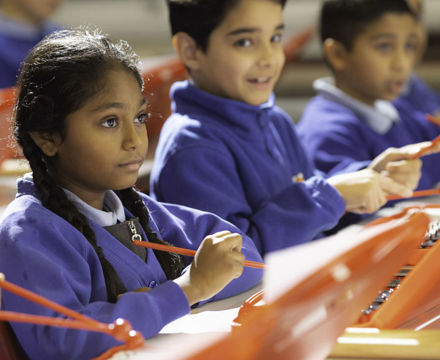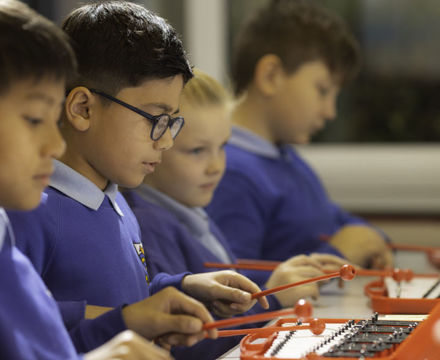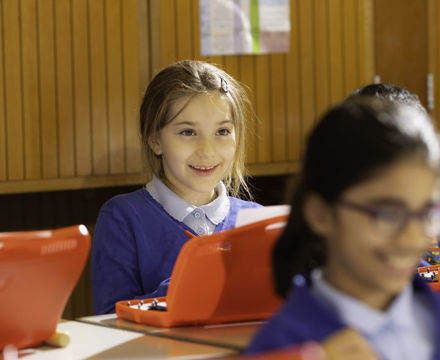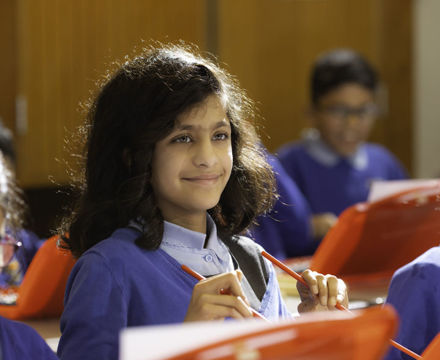Music
Music is possibly the most powerful and versatile subject in the curriculum. There are no boundaries to its relevance and its links with people, language, science, mathematics, physical and social development, *personal agency, and of course geography, history, media, culture and human relations – even politics.
Thrive:
- Discovering the joy and fun of singing
- Participating actively through voice, dance and playing in this most democratic of disciplines
- Displaying talents that they may not have in other subjects
- Working solo or in co-operation with others, as in choirs or informal groupings
- Listening and responding actively to music of vastly varying genres and origins, and so benefiting socially, emotionally, mentally and physically – music having been proved to be of value in these aspects of human development and well-being.
Aspire:
- Participate as equals in making music
- Get better and better at inherently enjoyable activities such as such as singing, making rhythms and both gross and fine motor control
- Emulate any of a great range of role models in music, from the ancient to the recent and the current
- Recite, sing, dance and play at any level of expertise
- Apply musical knowledge to their understanding of other subjects, such as science
- Succeed in the secondary phase of education
- Become adults who will be good friends, parents and family members by sharing music with others
Achieve:
- Their knowledge grows broader, a sense of self becomes more secure, and success is attainable at different levels
- Success breeds confidence and more success
- Equality and the recognition of peers can be invaluable
- A state of emotional and mental optimism is precious during childhood
- The capacity to perform in front of informal and formal audiences is good for all those involved
In this context, personal agency means, for example, taking responsibility for managing oneself, and making decisions about which activities, interests and role models to follow.
Any of the above might apply to other subject as well, but Music is the most infectious.
The framework for our curriculum is Charanga:
This is enhanced by other sources which motivate learners to observe, listen, imitate and play.
Progress and Attainment:
These are monitored and assessed by the Music teacher and records are kept.
Vision:
The overall vision for Music can be summarised by the aim of fostering the potential for children to become happier, healthier, more positive, more able to learn and possibly slightly better people. Feedback suggests that this is often observable, at least in the short term.
An area for development:
Opportunities for the learning of musical instruments and participating in choirs
Music ProgressionMusic Termly Topics 23-24Music Progression Map







